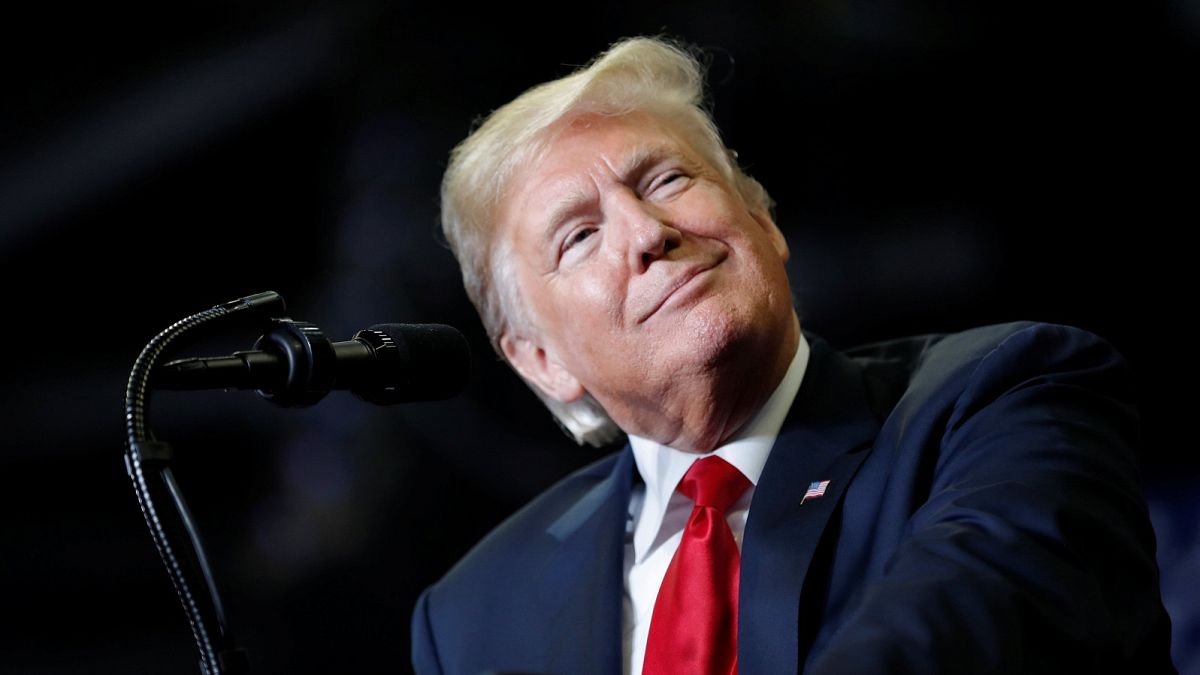Republicans are bleeding suburban voters who used to vote reliably Republican. This was key to the Democratic takeover of the House.
By Bill Schneider
It wasn't the economy, stupid. This election was about values.
President Donald Trump deliberately defined the election as a showdown between liberal and conservative values: the New America (immigrants, minorities, young people, women) versus the Old America (whites, older men, religious people, rural Americans). The result? A standoff.
Democrats took charge of the House of Representativeswhile Republicans gained seats in the Senate. Voters may want the two parties to work together, but differences of values, unlike differences of interests, are difficult to compromise. People's politics are driven by both interests and values. They sometimes conflict.
Voters may want the two parties to work together, but differences of values, unlike differences of interests, are difficult to compromise
Thomas Frank’s 2004 book “What's the Matter With Kansas?”asked how a state with a lot of working class whites who had once championed economic populism became a bedrock conservative bastion. The answer is that many of those whites have culturally conservative values driven by deep religious convictions. They vote their values over their interests.
So do a lot of educated upper-middle-class people. Take Jewish voters, who are disproportionately higher-income business and professional people. Their economic interests should lead them to vote Republican. So should the commitment many Jews feel to Israel. But look at how Jews voted on Tuesday: 79 percent Democratic, according to the NBC News exit poll. They put their liberal values over their conservative interests.
The wealthier you are, the more likely you are to vote Republican. That's interests. But the better educated you are, the more likely you are to vote Democratic. That's values.
What happens to people who are both wealthy and well-educated? They are, to use a sociological term, “cross-pressured.” If they vote their economic interests, they vote Republican. If they vote their cultural values, they vote Democratic.
This midterm election was all about Trump, not the economy. Republicans did well in states where Trump was popular, like North Dakota (61 percent approval) and Tennessee (59 percent approval). Republicans did poorly in states where Trump was unpopular like New Jersey (40 percent approval) and Virginia (43 percent). The midterm vote was split in states where voters were closely divided over Trump, like Florida (51 percent approval) and, surprisingly, Texas (49 percent approval).
Trump offends a lot of well-educated Americans. They regard him as vulgar, racist and a bully. As a result, Republicans are bleeding suburban voters who used to vote reliably Republican. They were the key to the Democratic takeover of the House of Representatives.
More than half all Americans nationwide live in suburbs, and Republicans needed them to win. This year, however, suburban voters split their ballots between the two parties. Democrats picked up House seats in places like Orange County, California (Los Angeles suburbs), Fairfax County, Virginia (Washington suburbs) and Harris County, Texas (Houston suburbs).
Meanwhile, the much discussed blue wave hit a red wall. Trump had held rallies in deeply red states, where his attacks on diversity, inclusion and political correctness resonated. He made no effort to appeal to swing voters.
The strategy worked in this year's Senate races, most of which were in red states like Indiana, North Dakota and Missouri. Democratic senators lost to Republicans in all three.
But Trump’s strategy flopped in House races. House elections were held everywhere, and his red state rallies only alienated voters in affluent suburbs.
It's likely to fail again in 2020. In 2016, Trump pulled off surprise victories in historically blue states like Pennsylvania, Michigan and Wisconsin. Those states went heavily Democratic this year. All three elected Democratic senators and governors. Democrats gained six House seats in the three states.
Trump’s strategy flopped in House races. House elections were held everywhere, and his red state rallies only alienated voters in affluent suburbs. It's likely to fail again in 2020.
Democrats will face a tough choice in 2020. Do they want to nominate a “Democratic Trump” — a candidate who can match Trump's aggressiveness blow for blow? Well, there's super-lawyer Michael Avenatti, who calls himself a “street fighter.” And former Attorney General Eric Holder, who is promising a more combative strategy. In response to Michelle Obama's advice — “When they go low, we go high” — Holder said last month, “When they go low, we kick them.” That's what this new Democratic Party is all about.
Alternatively, Democrats may want an "un-Trump." Typically the party out of power wins by nominating a candidate who is very different from the incumbent. In 1976, after Watergate, we elected a Sunday school teacher who promised, “I will never lie to you.” Jimmy Carter was the "un-Nixon." In 2008, Barack Obama was the "un-Bush." In 2016, Trump was the "un-Obama."
The candidate who thrilled Democrats this year by exhibiting civility, a very un-Trump-like quality,was Texas Senate candidate Beto O'Rourke. O'Rourke's presidential prospects may have diminished because he didn't win. Trump would never stop calling O'Rourke a “losah.”
Democrats are likely to have lots of choices for 2020. Every Democrat in Congress and every Democratic governor likely looks in the mirror each morning and asks, “Why not me?”
In 2016, a lot of Democrats failed to show up at the polls. They didn't particularly like Hillary Clinton and they expected her to have an easy victory. She didn't need their vote. This year, Democrats showed up to vote in record numbers, just so they could hand Trump a setback.
Imagine what Democrats will do in 2020 — when Trump's name will actually be on the ballot.
Bill Schneider is a professor at the Schar School of Policy and Government at George Mason University and author of the book, "Standoff: How American Became Ungovernable."
This article was first published on NBC News' Think. Opinions expressed in View articles are solely those of the author.












